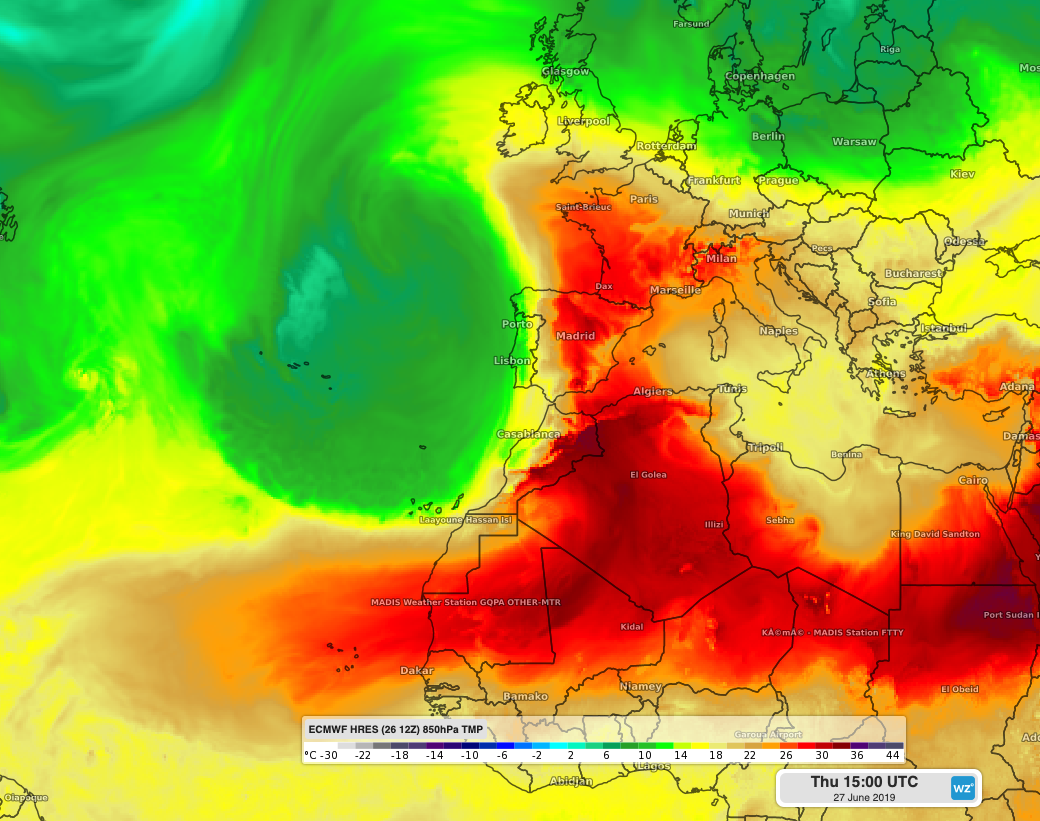Record-breaking heatwave hits Europe

An intense heatwave is affecting parts of Europe this week, with some records already broken and more likely to fall during the next 48 hours.
Hot air from Africa's Sahara Desert is being carried over Europe this week, thanks to the interaction of an upper-level low pressure system over the North Atlantic and an upper-level ridge to its east.

Image: ECMWF-HRES model showing hot air from Africa being carried over Europe on Thursday.
On Wednesday, a number of countries set new June maximum temperature records as the hot air descended over central Europe.
A weather station at Doksany in the Czech Republic reached 38.9 degrees, beating the country's previous June record of 38.2 degrees from Brno-Žabovřesky in 2000. Doksany has 68 years of temperature observations. Another station at Teplice reached 37.2 degrees, which was their highest June temperature in 122 years of records.
A weather station at Coschen, located in far eastern Germany, reached 38.6 degrees on Wednesday. This was the country's highest June temperature on record, exceeding the previous record of 38.5 degrees from 1947.
The hottest air will be located over western Europe on Thursday and Friday, with temperatures forecast to exceed 40 degrees in parts of France. This could challenge France's June record of 41.5 degrees at Narbonne in 2003.
According to Max Gonzalez, Head of Weather and Climate Services at Weatherzone, “this is potentially one of the most significant heatwaves on record in Western Europe for the month of June”.
When the atmosphere heats up, it expands. Measuring the height of a specific atmospheric pressure level indicates how much the atmosphere has expanded horizontally in response to heating. A weather balloon released over Switzerland on Wednesday revealed that the 500 hectopascal pressure level was higher than any other reading taken since balloon launches began there in 1943. This shows how exceptional the atmospheric setup of this week's weather event is for Europe.
Europe is currently under historically strong upper ridge.
— Mika Rantanen (@mikarantane) June 26, 2019
Sounding from Payerne, Switzerland just recorded 500-hPa height of 5987 gpm, which is hands down the highest reading ever recorded in Switzerland (soundings began in 1943). pic.twitter.com/CjKSbaUCkR
Temperatures will gradually cool down later this week and early next week as the exceptionally warm air mass breaks down over Europe.